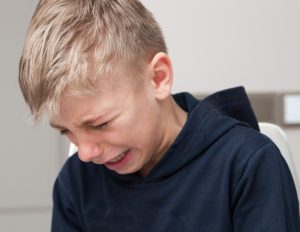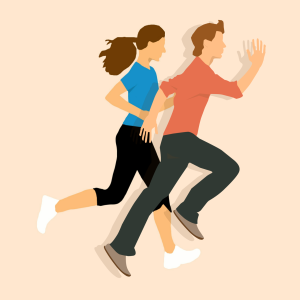ABC’s of Behavior Management at Home
 Kids’ difficult behavior can be a huge challenge for parents. But by using techniques from behavioral therapy, parents can change the way kids react to the things that set them off. Read more »
Kids’ difficult behavior can be a huge challenge for parents. But by using techniques from behavioral therapy, parents can change the way kids react to the things that set them off. Read more »
 Kids’ difficult behavior can be a huge challenge for parents. But by using techniques from behavioral therapy, parents can change the way kids react to the things that set them off. Read more »
Kids’ difficult behavior can be a huge challenge for parents. But by using techniques from behavioral therapy, parents can change the way kids react to the things that set them off. Read more »
 The Backpack Connection Series is a collection of tip sheets created to provide a way for teachers and parents/caregivers to work together to help young children develop social emotional skills and reduce challenging behavior. Read more »
The Backpack Connection Series is a collection of tip sheets created to provide a way for teachers and parents/caregivers to work together to help young children develop social emotional skills and reduce challenging behavior. Read more »
 CHC staff member Lauren Sims recounts her experience with raising a son who has ADHD—the challenges and the rewards—and offers advice for parents who may be just beginning their ADHD journey. Read more »
CHC staff member Lauren Sims recounts her experience with raising a son who has ADHD—the challenges and the rewards—and offers advice for parents who may be just beginning their ADHD journey. Read more »
 A month into school, Chicago social worker Alyssa Rodriguez says she underestimated the challenge ahead. Student behavior referrals are up, as middle schoolers hurt each others’ feelings with comments they’d usually only be bold enough to say online.
A month into school, Chicago social worker Alyssa Rodriguez says she underestimated the challenge ahead. Student behavior referrals are up, as middle schoolers hurt each others’ feelings with comments they’d usually only be bold enough to say online.
Schools across the country say they’re seeing an uptick in disruptive behaviors. Read more »
 Phebe Cox grew up in what might seem an unlikely mental health danger zone for a kid: tony Palo Alto, California, in the heart of Silicon Valley. But behind its façade of family success and wealth, she said, is an environment of crushing pressure on students to perform. By 2016, when Cox was in middle school, Palo Alto had a teen suicide rate four times the national average. Read more »
Phebe Cox grew up in what might seem an unlikely mental health danger zone for a kid: tony Palo Alto, California, in the heart of Silicon Valley. But behind its façade of family success and wealth, she said, is an environment of crushing pressure on students to perform. By 2016, when Cox was in middle school, Palo Alto had a teen suicide rate four times the national average. Read more »
 Up to 20 percent of public school students are served under the Individuals with Disabilities Education Act, but only 7 percent of Asian Americans are, the lowest of any group. Read more »
Up to 20 percent of public school students are served under the Individuals with Disabilities Education Act, but only 7 percent of Asian Americans are, the lowest of any group. Read more »
 The findings of a study published with Frontiers in Psychiatry suggests that those who engage in regular exercise may lower their risk of developing anxiety by almost 60%. Read more »
The findings of a study published with Frontiers in Psychiatry suggests that those who engage in regular exercise may lower their risk of developing anxiety by almost 60%. Read more »
 Learning how to cope with adversity is an important part of healthy child development. When we are threatened, our bodies prepare us to respond by increasing our heart rate, blood pressure, and stress hormones, such as cortisol. When a young child’s stress response systems are activated within an environment of supportive relationships with adults, these physiological effects are buffered and brought back down to baseline. Read more »
Learning how to cope with adversity is an important part of healthy child development. When we are threatened, our bodies prepare us to respond by increasing our heart rate, blood pressure, and stress hormones, such as cortisol. When a young child’s stress response systems are activated within an environment of supportive relationships with adults, these physiological effects are buffered and brought back down to baseline. Read more »
 It should come as no surprise that a serious lack of sleep, or seriously disturbed sleep, is one of the most common symptoms of depression among adolescents. After all, however tired you might feel, it’s hard to drop off if you’re wracked with doubts or worries. This is true for adults too, with 92% of people with depression complaining of sleep difficulties. Read more »
It should come as no surprise that a serious lack of sleep, or seriously disturbed sleep, is one of the most common symptoms of depression among adolescents. After all, however tired you might feel, it’s hard to drop off if you’re wracked with doubts or worries. This is true for adults too, with 92% of people with depression complaining of sleep difficulties. Read more »